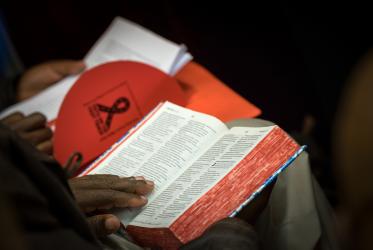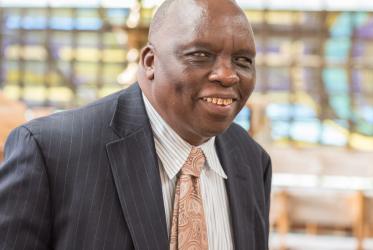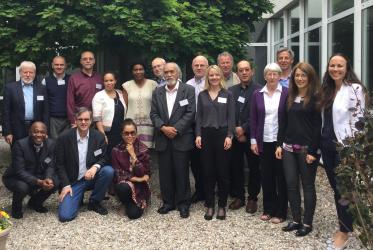Displaying 121 - 140 of 161
East African communities discuss disability, theology
17 November 2016
Bible study gives hope as youth reflect on HIV
02 November 2016
Sam Kabue: from the village to the world with eyes wide open
27 October 2016
Zambia: “On HIV, we do not compete. We work together.”
20 October 2016
Kenya: Voice of faith communities crucial in overcoming HIV
14 October 2016
Humanitarian Partnership Conference focuses on inclusive practices
27 September 2016
Pan-African Christian organization dedicates new office
04 August 2016
Ecumenical educators plan global institute
25 May 2016
Methodist Church in Kenya consecrates second woman bishop
05 February 2016
Voices of faith speaking to voices of fear
03 February 2016
Sorry child, but I’m HIV-positive
10 December 2015
Placing family in the HIV response vanguard
10 December 2015
Common prayer in Geneva responds to acts of violence
16 November 2015







